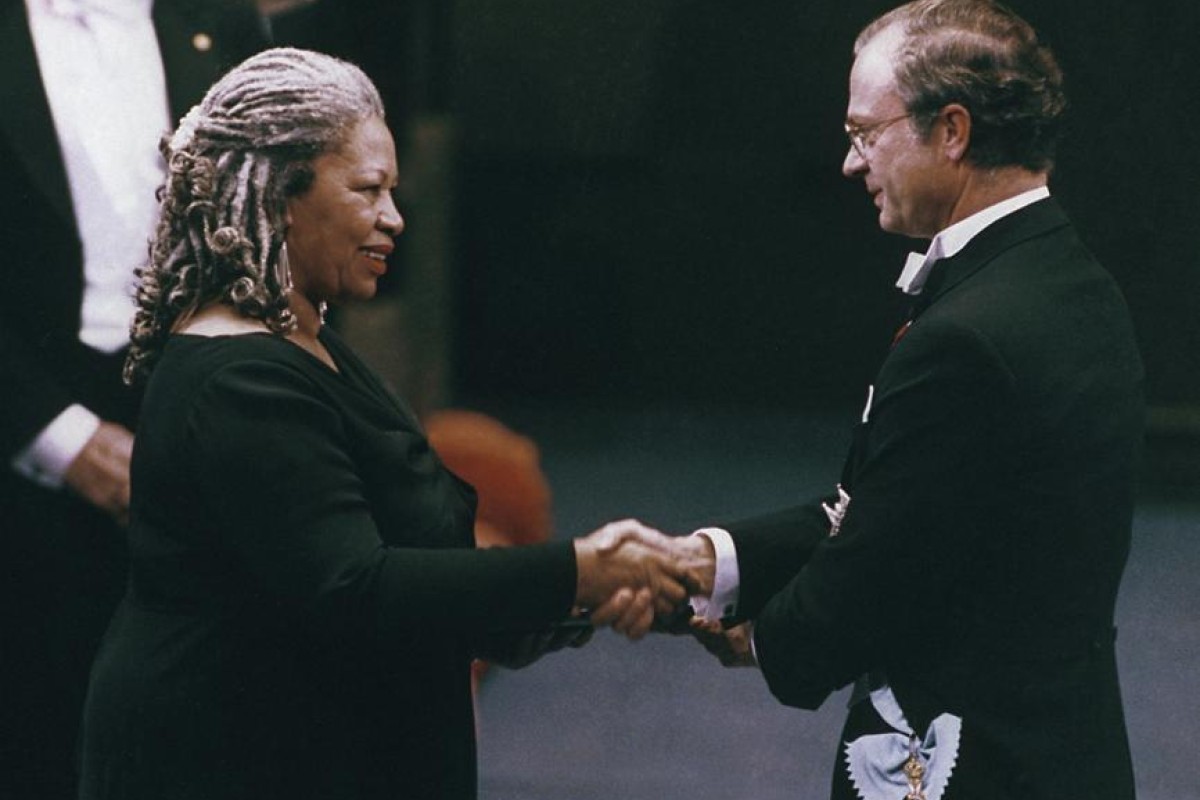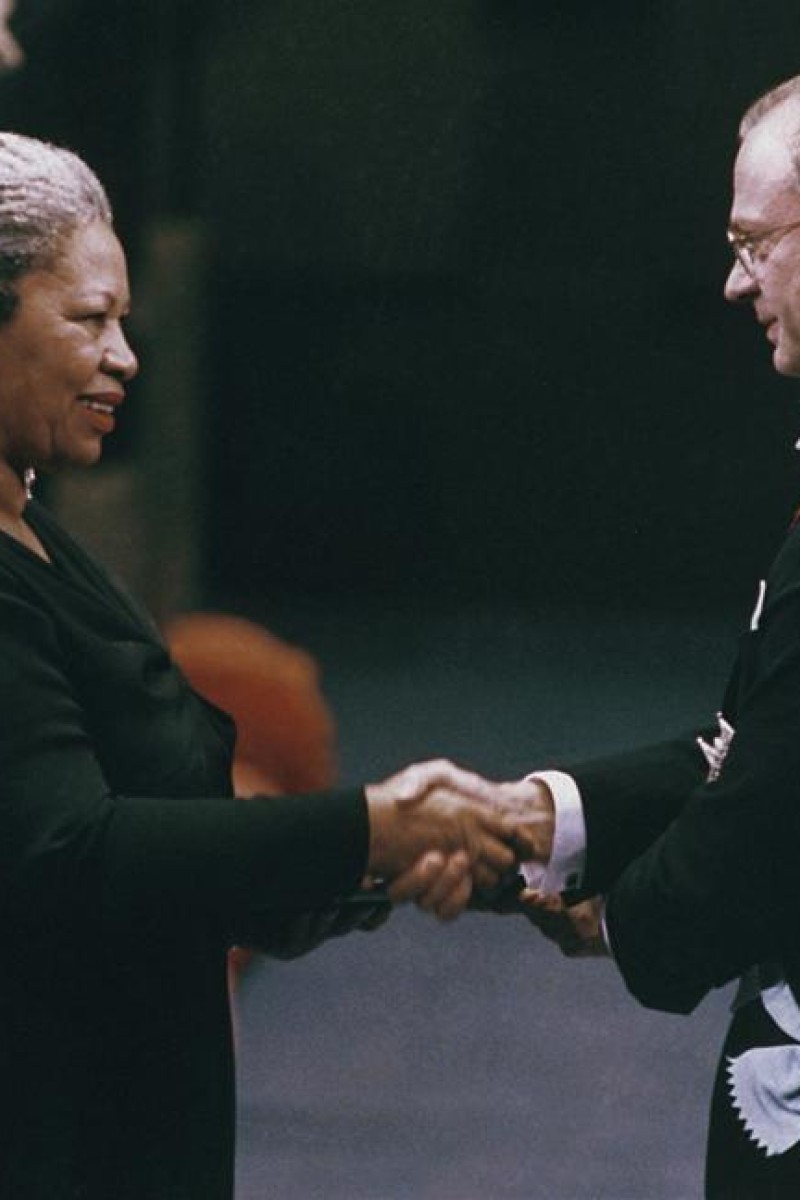 Toni Morrison received the Nobel Prize in literature in 1993.
Toni Morrison received the Nobel Prize in literature in 1993.Toni Morrison, the Nobel Prize-winning novelist who conjured a black girl longing for blue eyes, a slave mother who kills her child to save her from bondage, and other characters who helped transfigure a literary canon long closed to African Americans, died Aug. 5 at a hospital in New York City. She was 88.
Paul Bogaards, a spokesman for the publishing company Alfred A. Knopf, announced the death but did not provide an immediate cause.
Morrison spent an impoverished childhood in Ohio steel country, began writing during what she described as stolen time as a single mother, and became the first black woman to receive the Nobel Prize in literature. Critically acclaimed and widely loved, she received recognitions as diverse as the Pulitzer Prize and the selection of her novels - four of them - for the book club led by talk-show host Oprah Winfrey.
American YA author Lamar Giles on why diversity in books is so important
Morrison placed African Americans, particularly women, at the heart of her writing at a time when they were largely relegated to the margins both in literature and in life. With language celebrated for its lyricism, she was credited with conveying as powerfully, or more than perhaps any novelist before her, the nature of black life in America, from slavery to the inequality that went on more than a century after it ended.
Among her best-known works was Beloved (1987), the Pulitzer-winning novel later made into a film starring Winfrey. It introduced millions of readers to Sethe, a slave mother haunted by the memory of the child she had murdered, having judged life in slavery worse than no life at all. Like many of Morrison’s characters, she was tortured, yet noble - “unavailable to pity,” as the author described them.
The Bluest Eye (1970), Morrison’s debut novel, was published as she approached her 40th birthday, and it became an enduring classic. It centered on Pecola Breedlove, a poor black girl of 11 who perceives herself as ugly. Morrison said that she wrote the book because she had encountered no other one like it - a story that delved into the life of a child so infected by racism that she had come to hate herself.
Teens tell YP about their favourite books for World Book Day
“She had seen this little girl all of her life,” reads a description of Pecola. “Hair uncombed, dresses falling apart, shoes untied and caked with dirt. They had stared at her with great uncomprehending eyes. Eyes that questioned nothing and asked everything. Unblinking and unabashed, they stared up at her. The end of the world lay in their eyes, and the beginning, and all the waste in between.”
Morrison’s Nobel Prize, bestowed in 1993, made her the first native-born American since John Steinbeck in 1962 to receive that honor. The citation recognised her for “novels characterized by visionary force and poetic import” and that breathed life into “an essential aspect of American reality.”
At the end of her life, her dreadlocks by then streaked with gray, Morrison often appeared to fill the role of a sage elder. In 2012, President Obama awarded her the nation’s highest civilian honor, the Presidential Medal of Freedom, recognizing her for “her nursing of souls and strengthening the character of our union.”
Is Catcher in the Rye still relevant in 2019?
Obama described her as “one of our nation’s most distinguished storytellers,” a judgment that was nearly unanimous among literary critics. They tussled, however, over whether Morrison was best described as an African American writer, an African American female writer, or simply an American writer - and whether the label mattered at all.
“I can accept the labels,” Morrison told the New Yorker in 2003, “because being a black woman writer is not a shallow place but a rich place to write from. It doesn’t limit my imagination; it expands it. It’s richer than being a white male writer because I know more and I’ve experienced more.”
